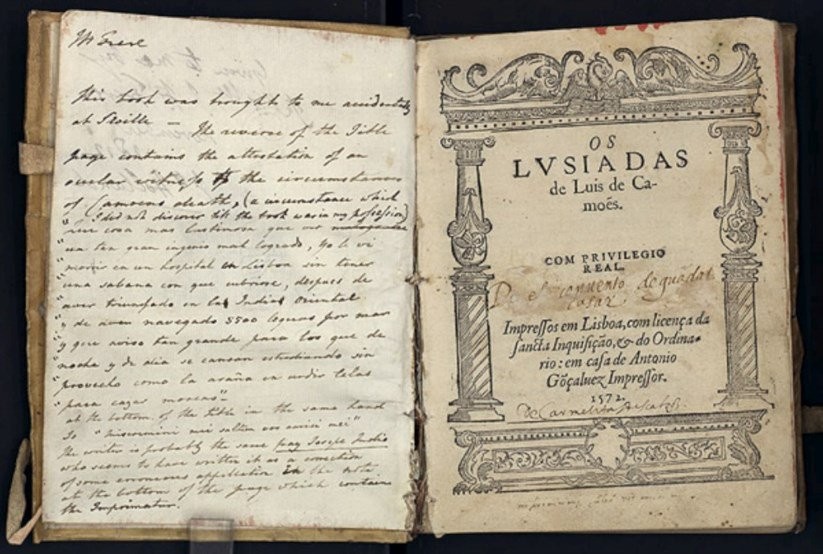
Camões dedicated his masterpiece to King Sebastian of Portugal.

The extraordinary Portuguese discoveries and the "new kingdom that they exalted so much" (" novo reino que tanto sublimaram") in the East, and certainly the recent and extraordinary deeds of the "strong Castro" (" Castro forte", the viceroy Dom João de Castro), who had died some years before the poet's arrival to Indian lands, were the decisive factors for Camões completing the Portuguese epic. At the end of the poem, on the Island of Love, the fictional finale to the glorious tour of Portuguese history, Camões writes that the fear once expressed by Bacchus has been confirmed: that the Portuguese would become gods.

Jupiter says that their history proves it because, having emerged victorious against the Moors and Castilians, this tiny nation has gone on to discover new worlds and impose its law in the concert of the nations. In these strophes, Camões speaks of Viriatus and Quintus Sertorius, the people of Lusus, a people predestined by the Fates to accomplish great deeds. Of him, Theodor Mommsen said "It seemed as if, in that thoroughly prosaic age, one of the Homeric heroes had reappeared." Viriatus led the Lusitanians to several victories over the Romans between 147 BC and 139 BC before he was betrayed to the Romans and killed.

Viriatus (also spelled Viriathus known as Viriato in Portuguese and Spanish) (died 139 BC) was the most important leader of the Lusitanian people that resisted Roman expansion into the regions of western Hispania (Roman naming) or western Iberia (Greek naming), where the Roman province of Lusitania would be established (in the areas comprising most of Portugal and Galicia). "He carried on the war not for the sake of personal gain or power nor through anger, but for the sake of warlike deeds in themselves hence he was accounted at once a lover of war and a master of war." – Cassius Dio


 0 kommentar(er)
0 kommentar(er)
